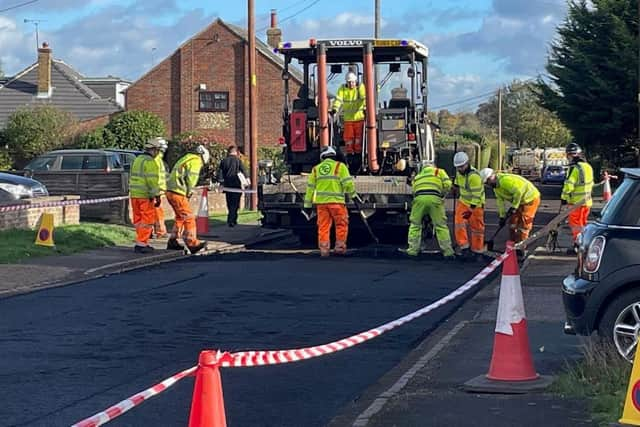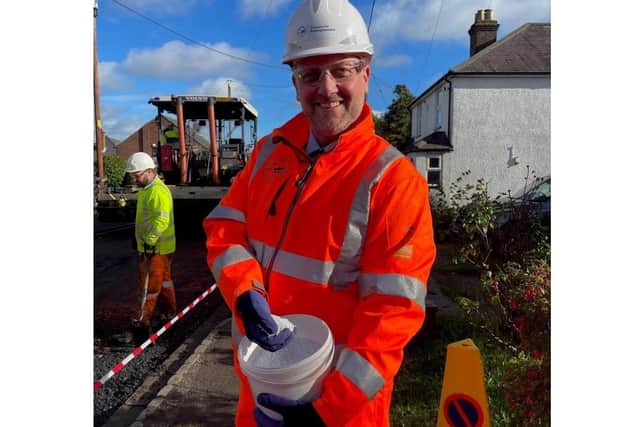Recycled plastic being trialled for use in road resurfacing in Bucks
and live on Freeview channel 276
Recycled plastic is being used in road resurfacing in two trial areas in Bucks – the first time this has been tried in the UK
Bucks Council is working with UK-based Roadfill Ltd, trialling the limited use of recycled plastic in road resurfacing, in a bid to find better and more sustainable ways to maintain the county’s highways.
The system has been trialled successfully in Europe.
Advertisement
Hide AdAdvertisement
Hide Ad

Two small trial patches of road – one on the busy A40 Oxford Road in Denham and the second on Orchard Way in Holmer Green – have now been laid.
The Highways team will be monitoring how the material performs alongside more traditional materials.
The recycled plastic from waste is incorporated into the asphalt mix and used in the road surface layer, with the aim of creating a stronger, more durable and reliable road, whilst retaining sufficient elasticity to reduce the formation of cracks and potholes.
Although the plastic makes up just 0.2 per cent of the material used to resurface the road, on the relatively short (280m) trial section at Orchard Way the plastic material used equates to 16,000 recycled 500ml plastic bottles.
Advertisement
Hide AdAdvertisement
Hide Ad

Cabinet member for transport, Steven Broadbent, said: “The two trials will enable us to test the performance and longevity of the road surfaces over an initial 12-month period.
"If the results are positive, we may then consider further sites, as well as monitoring the original sites for a further four years to check how they hold up over a longer period of time.”